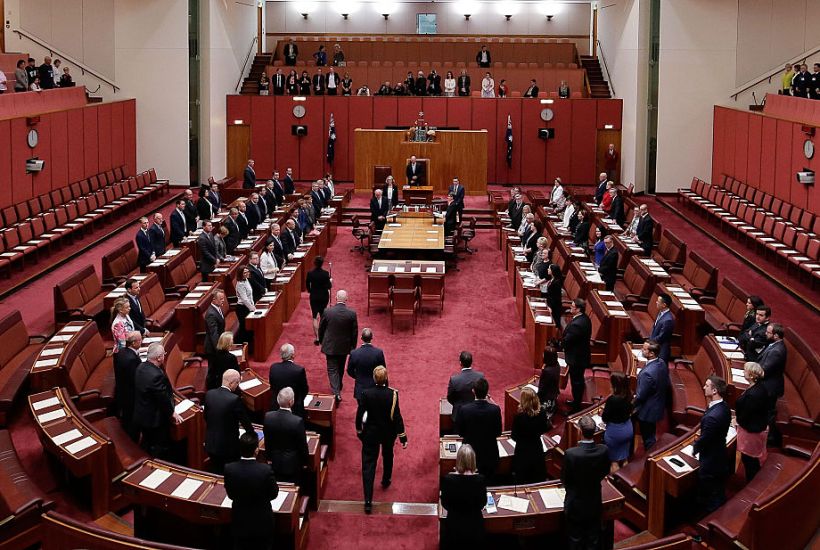Since federation in 1901, Australians have always known bicameral governance. With the nation’s constitution largely based on the American founding document, Australia has always had a lower house, the House of Representatives, and an upper house, the Senate. However, despite its apparent ‘necessity’ as a system of checks and balances, the Australian Senate is, in fact, an impediment to effective government, as well as both democratically deficient, and unnecessary. The Senate is an institution deserving of abolition.
The Senate is primarily a hindrance to effective and decisive government, due to the legislative gridlock it causes. This is due in part to the system of Senate representation, which is proportional to the vote share that a party receives in a particular state. This method of representation frequently results in no party having a majority in both houses causing a total inability for decisive governance to eventuate. The fact that a government often cannot pass legislation without the agreement of the opposition or cross-benchers, means that many key reforms and election promises simply cannot be implemented.
Such a manifestation of bicameralism in Australia has a significant follow-on effect for the Australian people, with the Senate impacting the ability of the government to pass necessary budgetary measures. The negative consequences of this can be observed in the high levels of net government debt currently experienced.
Indeed, while John Howard left office in 2007, after controlling both the upper and lower houses, with no net national debt; at present, where no party has held a lower house and Senate majority since Howard’s defeat, net national debt has ballooned to an estimated $326 billion. This figure is expected to rise. In the interest of their own political fortunes, opposition and cross-bench senators frequently reject tough and publicly unpopular budget repair bills, leaving Australia on the path to national bankruptcy.
This gridlock would be forgivable, if not tolerable, were the Senate itself a democratic institution. This, however, is not the case, due largely to the fact that each state has the ability to elect 12 senators immaterial of its population. This method of state-based representation is an issue, with Tasmania and New South Wales, for example, each electing the same number of senators; despite the population of New South Wales being 15 times larger than that of Tasmania. The consequence of this is that the Senate vote of a Tasmanian is 15 times more powerful than that of a New South Welshman. This can only be described as a blatant gerrymandering of the democratic process.
Moreover, as the balance of power in the Senate can often fall to the opposition and cross-benchers, then the responsibility for ‘keeping a check’ on the power of the elected government likewise falls to the parties rejected by the Australian electorate. The will of the Australian people, expressed by giving a particular political party a lower house majority, comes a distant second to the compromise of election promises that are required for bills to actually get Senate approval. If the government cannot pass central tenets of its election mandate through the Senate without the approval of political parties Australia rejected, then how can be said that the people truly decide who governs the nation?
Aside from being undemocratic, the Senate is also unnecessary. While it is commonly perceived to be an imperative system of checks and balances on elected government, this argument is flawed. Indeed, this viewpoint ignores the fact that elected government is still accountable, primarily, to the voter; but also to international law and an independent judiciary as well.
The concept that Australia would be worse off without the Senate, and strong bicameral governance, is also erroneous. The governments of New Zealand and Queensland are both unicameral, consisting of only a lower house. No one could argue that these places are any less democratic for not having Senate ‘checks and balances.’ The only result of unicameralism in these locations is that it is easier to pass reform bills, and easier for elected politicians to deliver on their mandates. The result is a more effective representative democracy, most certainly not unchecked tyranny.
Overall, the benefits to Australia of its Senate, and of bicameralism in general, are prodigiously exaggerated. The Australian Senate is undemocratic, redundant, and an institution that only causes legislative impasse. It severely limits the ability of elected politicians to deliver the mandate they were elected to implement, and therefore should be abolished.
Abolition itself is possible by means of a public referendum. While Australia does not have a strong record of supporting constitutional referendums, a ‘Yes’ vote in a referendum to abolish the Senate, if such an event ever occurred, would be hugely beneficial for the nation.
Got something to add? Join the discussion and comment below.
Got something to add? Join the discussion and comment below.
Get 10 issues for just $10
Subscribe to The Spectator Australia today for the next 10 magazine issues, plus full online access, for just $10.


























Comments
Don't miss out
Join the conversation with other Spectator Australia readers. Subscribe to leave a comment.
SUBSCRIBEAlready a subscriber? Log in